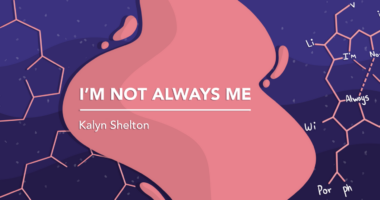What We Get for Staying Sick and Victimized

My acute hepatic porphyria (AHP) diagnosis was a whirlwind that transformed my life and the lives of my loved ones. It took a series of dramatic attacks for doctors to take me seriously. Sadly, this is not uncommon for people with AHP.
After nearly two decades searching for answers, I finally had a diagnosis in February 2017. But there was no jumping for joy, as I was still regaining the use and strength of my legs. I was at the lowest point of my life. Following a seven-month series of hospitalizations, I was weak, traumatized, and unemployed. Recovering in my condo, where I lived alone, I was in a daze, a wounded warrior returning from battle.
My liver is constantly trying to poison my body, and I saw firsthand what it’s capable of. How was I supposed to move past that?
The fall
I remember looking at my calendar for the year, the obligations for which I’d raised my hand, and the meetings I had scheduled. Volunteering, coffee dates, and happy hours didn’t make sense anymore. No one I knew had gone through something like I had. I was the first person my doctors had seen with my diagnosis, and they couldn’t tell me whether things would improve, or how.
It’s easy to see why so many people with AHP feel victimized and defeated. Days are spent coordinating care with various specialists in multiple health systems, managing issues with health insurance, tending to symptoms, and practicing self-care. Even more challenging, we are exiled to a life waiting in the shadow of the next attack. When it hits, we curl into a fetal position and roll our bodies into the nearest hospital, vomiting uncontrollably and trembling with pain, only to be questioned about the validity of the very diagnosis we fought so hard to receive. And we’re supposed to accept this as our new normal?
For the next year, I was stuck, bitter and sick. Attempting to interact with the outside world was risky, because I was both fragile and a succubus. I wanted more from others than I could give. Drawn to those in my life who nurtured me most, I fed on their sympathy. I thrived on their pity. I was unknowingly taking advantage of my most cherished loved ones. Still, fear and anger cemented me in place.
I thought I just needed to grieve and process. Waves of emotion hit me out of nowhere: in the organic aisle at the grocery store, walking in the woods, and riding in the passenger seat through the mountains of northern Utah. Bent over, heaving, the flood was impossible to contain. I spent mornings in bed negotiating my worth, fighting with my body’s urges to rest.
Was I supposed to continue on a path that no longer seemed sustainable? Compromise my dreams? Give them up entirely?
Living sick
Change is scary and victimhood is real. None of us asked for an AHP diagnosis, and if managing the symptoms wasn’t life-altering enough, we’re thrust into a medical system that’s not designed to care for complex patients like us.
The natural urge is to resist. I wanted to continue the life I had before, regardless of the bouts of unspeakable pain and occasional loss of bowel function. Denial made my pain easier to ignore and avoidance helped me cope.
Resistance kept me sick.
Back then, staying sick served an important function: It was how I received compassion. The most comforting and supportive feelings I experienced came from the sympathy of others. All it took was a sob story on social media or a dramatic text and bam! Needs were met.
After a while, the pity party took a toll. Instead of a vibrant ocean teeming with life, I saw only rough and choppy water. Holding on became exhausting, and I sensed some of my long-time friends were about to jump ship.
Recovering compassion
Denial of an incurable disease made no sense. Neither did judging myself against a younger, stronger version of myself who was less affected by AHP. Plus, it’s downright cruel.
Eventually, I realized that staying sick was keeping me stuck. I had to make an active choice to move past my fear and anger into disease acceptance. I started with my reliance on others for sympathy. In the process, with the help of my therapist and Kristen Neff’s approach of mindful self-compassion, I recovered my inner soother.
Suddenly, my life became more manageable. It’s not that the seas had calmed, but that I could better ride the waves. And I was kinder when I fell in.
What would happen if we weren’t stuck paddling, just trying to keep our heads above water? If we let go of victimization and fear, could we collectively move forward into a new, empowered AHP community?
Note: Porphyria News is strictly a news and information website about the disease. It does not provide medical advice, diagnosis, or treatment. This content is not intended to be a substitute for professional medical advice, diagnosis, or treatment. Always seek the advice of your physician or other qualified health provider with any questions you may have regarding a medical condition. Never disregard professional medical advice or delay in seeking it because of something you have read on this website. The opinions expressed in this column are not those of Porphyria News or its parent company, Bionews, and are intended to spark discussion about issues pertaining to porphyria.








Helen Adams
I appreciate the humanity and candor that you brought to this article. I cannot imagine everything you went through as you learned more about your medical condition, but you made the feelings that you experienced come alive in your writing. I feel more aware of the situation that you and others with AHP face. That is exactly what genuine good writing should do. Props to you for your article and your viewpoint on dealing better with a difficult situation.
Claire Richmond
Thank you for your reading and feedback, Helen!